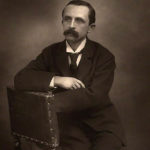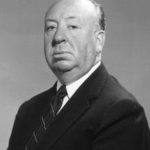Find out more about Mary Rose
Our next play on stage is “Mary Rose” by JM Barrie (author of Peter Pan). This little-known play is a haunting tale of a girl, of time, and of the places just out of sight. We’d like to tell you more about this wonderful play.
 “Mary Rose” debuted on 22 April 1920 at the Haymarket Theatre in London, with Fay Compton starring Mary Rose.
“Mary Rose” debuted on 22 April 1920 at the Haymarket Theatre in London, with Fay Compton starring Mary Rose.
The Times published a review of the first night, “It is like nothing you have ever seen and yet full of everything you have seen from a child up. Its ghosts are almost more human than its creatures of flesh and blood, so that you subdue your shiver to love them.”
In 1921, the play was included in Best Plays of 1920–1921.
About the Author
 Sir James Matthew Barrie, born in 1860, was a Scottish novelist and playwright, best remembered today as the creator of Peter Pan. He was born and educated in Scotland and then moved to London, where he wrote a number of successful novels and plays.
Sir James Matthew Barrie, born in 1860, was a Scottish novelist and playwright, best remembered today as the creator of Peter Pan. He was born and educated in Scotland and then moved to London, where he wrote a number of successful novels and plays.
His most famous and enduring play is Peter Pan, or The Boy Who Wouldn’t Grow Up, a “fairy play” about an ageless boy and an ordinary girl named Wendy who have adventures in the fantasy setting of Neverland. After Peter Pan, Barrie continued writing, mostly plays aimed at adults.
Several of his later works had a dark element to them. His last major play, Mary Rose, was produced in 1920 and centered on a son visited by his mother’s ghost.
The parallels between Mary Rose and Peter Pan
 The New York Times reviewer of the 2007 revival of the play noted,
The New York Times reviewer of the 2007 revival of the play noted,
“The play is in many ways a more mature and mournful reworking of themes Barrie explored in the tale of the boy Peter Pan who refused to grow up. Time is seen as a quiet despoiler of happiness and innocence, and the lure of another world unblemished by its passing has an irresistible seduction.”
 Alfred Hitchcock’s Obsession
Alfred Hitchcock’s Obsession
The play, Mary Rose was a festering obsession for Alfred Hitchcock.
He saw the play in 1920, during the original run, and it stuck with him from that time. Numerous times throughout his career, he attempted to adapt the play in a film, but was continually denied.
What kept Hitchcock so perpetually obsessed with it? It’s a powerful story dealing with love, loss, death and trying to hold on to youth.
